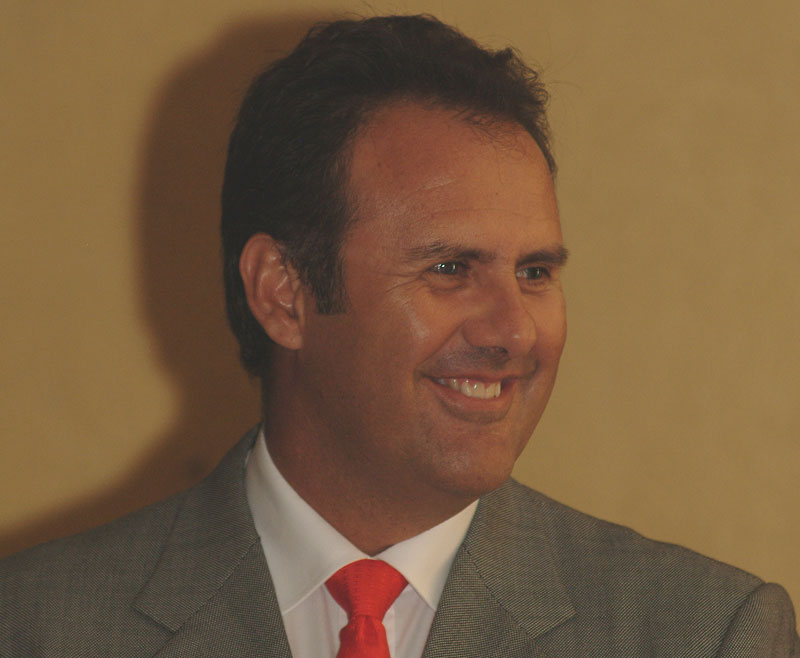Costa Rica faces the challenge of improving its infrastructure with the goal of significantly increasing its economic competitiveness in the region. Rafael Zamora Fernandez, President of the Pedregal Corporation, believes achieving logistical connectivity will be the key to solving this challenge.

How do you evaluate the infrastructure sector in Costa Rica?
Regarding infrastructure, we have an important fallback; because of a lack of performance, there has also been a lack of willpower to do things. Sometimes people do not look for solutions to problems. As a country, we need to have a development plan and - regardless of the administration of the moment - there must be continuity. Today, that commitment to continuity is lost every time a new administration arrives. We are urged to develop roads, airports, ports, railways and increase its power generation. Costa Rica has the conditions to have first class infrastructure.
Faced with this problem, we are at an ideal moment to promote a public-private partnership that contributes to the country’s development; for example, a group of private enterprises in which we participate has proposed to take advantage of the figure of the public works trust fund to finance, design, build and maintain new projects and/or expansion and reconstruction of existing projects, key to competitiveness. A concrete example would be the rehabilitation and expansion of the main import-export corridor called RUTA 32. In this way, the government can rely on the private sector’s capacities and resources, taking advantage of their specialties.
We need to involve companies in this responsibility, and these in turn must propose solutions instead of delegating work to officials and institutions that may not have neither the optimal conditions nor the will to make things right. There are both money to finance these infrastructure projects and implementation capacity from the private sector in Costa Rica, the only thing missing is to establish an agreement and lead the way.
How does PEDREGAL presents itself to the public sector as a strategic partner to develop these projects?
We propose to build holistically, taking advantage of the specialties of allied companies, with whom we share similar principles such as integrity, honesty, quality, innovation and future commitment to what we want from Costa Rica in the short, medium and long term.
We offer ourselves to the administration so that it takes advantage of our experience and capabilities for the planning and developing of the execution of the “National Transport 2011-2035 Plan”, in which the government invested important resources in its conception and is not being taken advantage of.
How do you assess President Solís’ first months in office regarding the infrastructure sector?
I believe that there is a lack of communication between the government and the construction sector, especially with road infrastructure companies. I think that if both parts come together it would bring greater fluidity and dynamism to the sector; there are companies willing to help President Solís and his ministers in this task, thus benefiting the country.
What is the private sector doing to push through this situation?
Basically knocking on the public sector’s doors, and as a country, starting to take conscience and commitment that we need the infrastructure development to elevate our level of competitiveness. We need for the regulatory framework to give legal security and that it allows other development opportunities and participation.
Internal financing for some works is simple; private companies, financial institutions, insurance companies and pension funds are urgently asking to be involved in this infrastructure investment.
The private sector has grown with great dynamism in the production of goods and services, and requires that the public infrastructure puts itself in the same level of development in the short term.
Are you interested in other public works projects?
Yes, of course, there is still lots to do. There are important infrastructure needs such as hospitals, ports, aqueducts, energy generation, among others; for which PEDREGAL has been preparing through its 10 production centers within the whole country. This with the purpose of participating or supplying the services and construction materials that these projects may require.
What services do you offer transnational companies that want to come to invest in the construction field?
We produce and commercialize as national leaders, construction materials like: aggregates, concrete blocks and pavers, industrialized mortars, as well as specialized equipment rental (transport, asphalt, concrete, among others). We are a strategic complement for these companies.
This company has contributed with public works for the country’s development for decades. How important has this contribution been?
At the beginning of the last century, in 1920 foreign companies would come to build and rent our quarries. Later, from July 1981, PEDREGAL is born and it is then when this company’s growth really begins. We have contributed significantly to the development of our country, participating in a large amount of works. We maintain an important collaborative link with the communities in which we realize our activities, ensuring their well being and sharing the resources that God has given us to help build a better country.
How does this company contributes to preserve the environment?
For example, one of the companies of PEDREGAL Group participates in the agricultural sector, where we have developed important areas of forest reserves, with more than 600 hectares. We work with a lot of forestation, with great control and taking care of nature. We need to make clear that protecting is not abandoning. At the construction level, we are producing and increasing the use of BioDiesel on our machinery in order to significantly reduce our greenhouse carbon emissions. We also invest in the development of products such as EcoStone (draining pavers), which allow surface water filtration to avoid erosion. Additionally, as a policy, we invest in state-of-the-art equipment that is more eco-friendly.
Vanessa Massimini (Project Director)
Matteo Transtevere (Editorial Director)
0 COMMENTS